MercoPress. South Atlantic News Agency
Environment
-
Saturday, October 1st 2011 - 01:02 UTC
Young whale dies beached 800 meters inland from the British east coast

A young whale which died after it beached in the Humber Estuary is probably of a species rarely found stranded on the east British coast, conservationists have said.
-
Friday, September 30th 2011 - 05:28 UTC
Rare white humpback whale calf spotted near Australia’s Great Barrier Reef
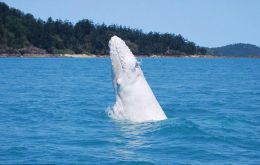
An extremely rare white humpback whale calf has been spotted near Australia's Great Barrier Reef in an event witnesses described Thursday as a “once in a lifetime experience”.
-
Thursday, September 29th 2011 - 06:16 UTC
Bolivian will resume month-long protests against a road in the Amazon

Bolivian demonstrators opposed to the construction of a road in the Amazon vowed on Wednesday to resume a month-long protest march that has become a major challenge to leftist President Evo Morales.
-
Thursday, September 29th 2011 - 06:09 UTC
Brazilian judge orders halt to construction of third largest dam in the world
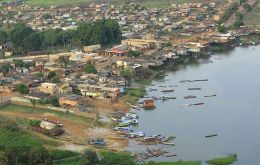
A judge in Brazil has ordered a halt to construction of a multi-billion-dollar dam project in the Amazon region. Judge Carlos Castro Martins barred any work that would interfere with the natural flow of the Xingu river.
-
Tuesday, September 27th 2011 - 01:36 UTC
Chilean company farming algae for future production of bio-fuels
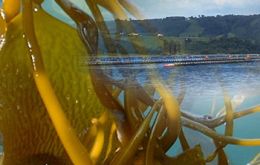
BAL Chile SA is dedicated to farming algae on the island of Chiloé and in a second stage, plans to produce bio-fuels for industrial use, announced the company’s CEO Benjamin González.
-
Friday, September 23rd 2011 - 19:53 UTC
HMS Protector ready for Antarctica; no helicopter on maiden deployment

Icebreaker HMS Protector, formerly MV Polarbjørn, has spent the spring and summer steadily being converted into a hydrographic survey ship to plug the gap left by HMS Endurance which nearly sank during a flooding incident in late 2008.
-
Thursday, September 22nd 2011 - 11:24 UTC
Bowhead whales from Greenland and Alaska mingle along the Arctic passage
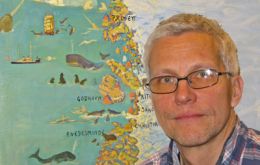
Bowhead whales, the giants of the Arctic, are using the Northwest Passage to move across the top of the Americas. Skeletons, DNA samples and harpoon heads have all suggested that bowhead populations living on each side of the continent did meet and mingle.
-
Tuesday, September 20th 2011 - 01:12 UTC
US diplomatic measures to make Iceland desist of its whaling activities

US President Barack Obama announced diplomatic measures to be taken by the United States against Iceland in condemnation of its whaling activities.
-
Monday, September 19th 2011 - 21:17 UTC
Times Atlas triggers controversy on the rate of Greenland’s ice loss
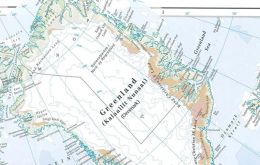
The Times Atlas of the World exaggerated the rate of Greenland's ice loss in its thirteenth edition last week, scientists said on Monday.
-
Monday, September 19th 2011 - 06:24 UTC
Flights to Bariloche in Argentine Patagonia back to normal after 4 months of ashes
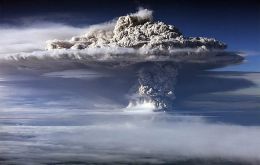
After months of inconveniences and troubles caused by the Chilean Puyehue volcano eruption, an airplane finally touched down Saturday at the airport tarmac of the Argentine Patagonia sky resort of Bariloche.
